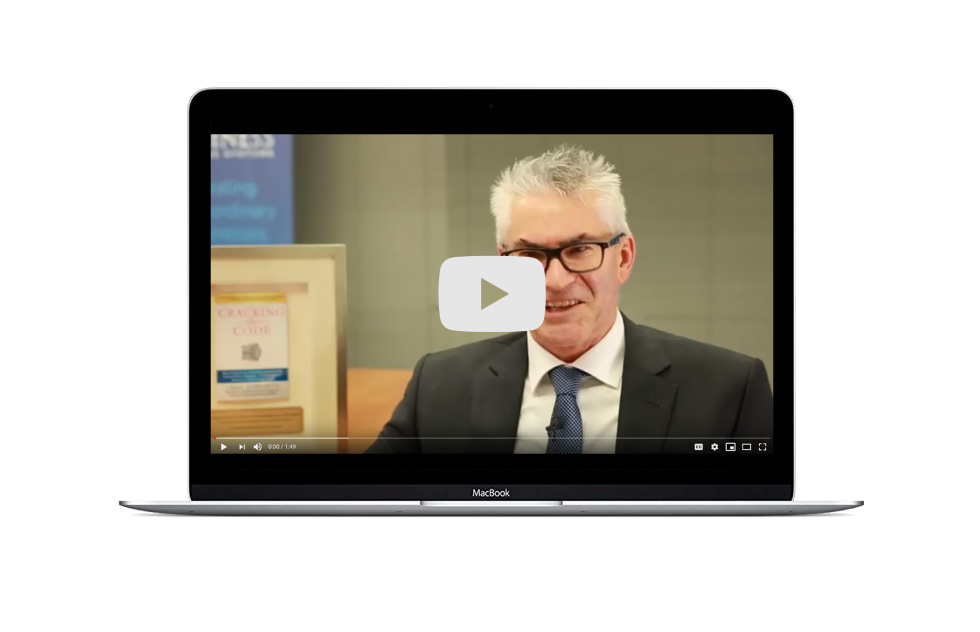Industrial Age Thinking Is Stopping You Getting Clients
Posted by Greg Roworth on Feb 16, 2021

Most of what we know about marketing comes from concepts that applied in the industrial age.
One of the results of our industrial age understanding of marketing is that we tend to think in terms of promotional campaigns when it comes to marketing.
Campaigns are time-based marketing projects that are typically planned to promote product launches or other special events to drive short term sales. They work well in product aware markets when there is a high demand for frequently purchased products in a competitive space.

In professional services, the environment is totally different. However, we typically approach marketing with a campaign style agenda, or often without much planning at all. Marketing tends to be reactive, based on how busy the team is, or how much work we have booked ahead.
Professionals who work on projects, tend to win projects and then focus on completing projects, before turning their attention to where the next project is going to come from. The result is that often professionals find themselves on a roller coaster ride when it comes to workloads. Some months are very busy, but then the next month is very quiet. When the forward workload starts to look a bit thin, we start to look at where we can get the next client or next sale.

To avoid this feast or famine existence, marketing needs to be approached as an ongoing process rather than as a series of projects or campaigns. We need to develop sustainable and repeatable systems to attract our ideal clients and to make those systems work independently of ourselves, with automation of the processes built in.
Even more importantly, those marketing systems need to help progress your potential clients through the buyers’ journey so you can educate them, build trust, authority positioning, and ultimately become the only logical choice to for them to work with.
The aim is not to make sales. The aim is to provide value all through the process to enable you to achieve maximum positive impact for your clients over the long term. When you can achieve this, you don’t have to worry about your revenue and profit targets being met.
The type of clients you attract will be the ones that don’t quibble about your prices. They will value your advice and welcome your further offers of assistance and respect you as their most trusted advisor. Because of this respect, and the results you help them achieve, their willingness to pay premium prices is assured.
But really, the important thing to remember is that people make buying decisions emotionally, then justify that decision with logical reasons. Any marketing messages we deliver need to address both the logical and the emotional needs of our ideal clients. The better we know and understand them, the better we can communicate intimately with them. Developing intimacy is important in building long term, mutually beneficial relationships in business, just as it is in courtship.

In building any relationship it is critical to understand the psychological triggers that enhance trust, commitment and loyalty. In our marketing we need to mimic the fundamental human relationship building principles as revealed by anthropologist and zoologist Desmond Morris, best-selling author of The Naked Ape, The Human Zoo and Intimate Behaviour. In Intimate Behaviour, Morris describes the twelve steps to human intimacy, from the first look through to sexual intercourse. The steps he outlined are a natural progression for friendships that grow into intimate relationships. The progression describes how people operate when they are looking for love in a long term relationship rather than just sex. That is how it is meant to be, if we want to respect the emotions and psychology of the person we desire to get to know and not push them away. If we are too keen to move from the eye to body stage to intercourse, we often suffer the unwanted repercussions of our haste.

The industrial age sales and marketing approach typically aims for a quick result. Our desire to make a sale quickly puts pressure on our client and they resist our advances. On the other hand, most professionals feel uncomfortable selling and hate to put pressure on clients. I have often heard professionals say, “I’m not a natural salesperson.” That’s because of the perception of what they think a “salesperson” should be. The way we have been taught to advertise and sell feels intuitively wrong to us and we often don’t like selling because we don’t want to be like the sleazy used car salesperson. And that’s a good thing ultimately, because this is not how we should be doing marketing and selling if we truly want to build long lasting relationships with our ideal clients.
Our most natural role, because of our skills and expertise, is that of an advisor, perhaps even a trusted authority. When it comes to selling, we somehow think we need to change into some kind of fast-talking persuasive convincer, or seducer and we don’t feel good about that.
The good news is that we have it all wrong. It turns out that the best way we can be in a selling situation is to be the trusted advisor. Seth Godin on his blog says that the most important question in marketing is, “Do they trust me enough to believe my promises?” He also says, “I think the biggest challenge is to stop acting like a marketer and start acting like a human.”
© 2021 Greg Roworth https://businessflightpath.com

